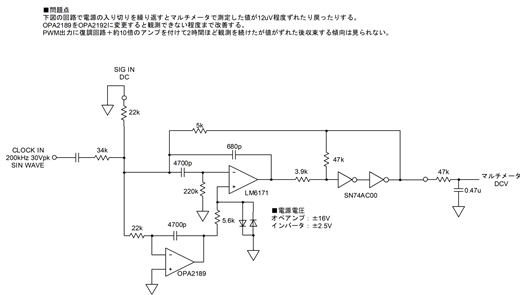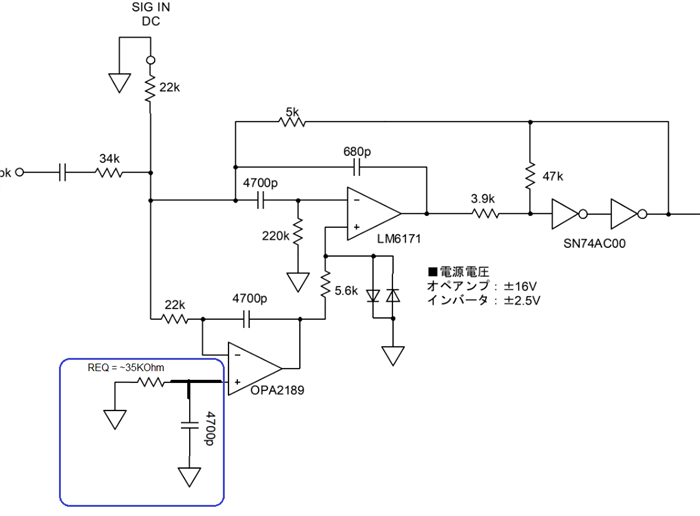Other Parts Discussed in Thread: LM6171, , OPA2192, OPA189, OPA192
Hi.
I have created a composite amplifier using OPA2189 and LM6171, and when I created a PWM modulator using this amplifier, I encountered a problem where the output voltage fluctuates every time the power is turned on and off.
I checked the experimental system shown below and found that the output of the PWM modulator fluctuates by about 12μV, and that changing the OPA2189 to the OPA2192 tends to improve the symptom.

Other things I am aware of are as follows.
Fluctuation does not always occur, but sometimes does not occur.
The magnitude and polarity of the fluctuations are not constant.
The fluctuation is not constant in magnitude and polarity.
All experiments were conducted in a thermostatic chamber set at 20°C, so it is unlikely that the temperature had any effect on the drift.
This is the first time I have used a zero-drift op amp, so I do not fully understand many aspects of it.


